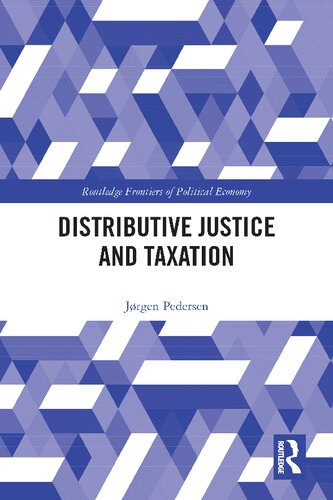

Most ebook files are in PDF format, so you can easily read them using various software such as Foxit Reader or directly on the Google Chrome browser.
Some ebook files are released by publishers in other formats such as .awz, .mobi, .epub, .fb2, etc. You may need to install specific software to read these formats on mobile/PC, such as Calibre.
Please read the tutorial at this link: https://ebookbell.com/faq
We offer FREE conversion to the popular formats you request; however, this may take some time. Therefore, right after payment, please email us, and we will try to provide the service as quickly as possible.
For some exceptional file formats or broken links (if any), please refrain from opening any disputes. Instead, email us first, and we will try to assist within a maximum of 6 hours.
EbookBell Team

4.1
30 reviewsProviding a thorough examination of distributive justice, Distributive Justice and Taxation presents and discusses different theories of what constitutes a just society, and how goods should be distributed in such a society.
The distribution of goods in society has direct and serious consequences on the lives of the people. There are therefore important questions to be asked regarding the justice of that distribution: Is it just that some people inherit large fortunes while others inherit nothing? Do rich people have additional access to political power because of their wealth? If so, is that just? And should the ambition for economic policies be to combat poverty, or to reduce inequality? This book explores these questions and a number of others through the analysis of related theories, spanning from strong egalitarian theories on the left to right-wing libertarianism. The chapters also explicitly examine the case of taxation – one of the most important and controversial measures of distribution of goods in society. Placing emphasis on the case of Norway and using data from both the UK and USA as a point of comparison, the work details and explores the key features of the tax system. It concludes by presenting and evaluating arguments for and against taxes such as income tax, wealth tax, and inheritance tax.
This book is essential reading for those interested in distributive justice, as well as students and scholars of philosophy, law, political science, and economics.